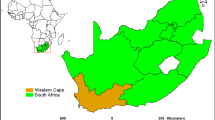Abstract
Many urban centers are at risk of heat wave events. These events are exacerbated in urban environments by the urban heat island effect (UHI) which is the built environment’s characteristic to store heat during the day and release it at night time, thus increasing the temperature. This study takes stock of UHI effect and evaluates the integration of mitigation measures with land use planning in two large cities of Canada, namely Montréal and Toronto. The two cities have been chosen because they have put in place active mitigation measures through a hot weather response plan in response to recent events of heat waves. The premise was that because the UHI effect is a built environment’s characteristic, it is possible to modify the built environment in order to reduce heat storage. Usually, local land use plans provide cities with development and redevelopment guidelines, implementation measures, and policies to be considered. The study also discusses most commonly used mitigation strategies and measures and their effectiveness.




Similar content being viewed by others
References
City of Montréal (2004a) Master Plan, Chapter 2. http://ville.montreal.qc.ca/portal/page?_pageid=2762,3099656&_dad=portal&_schema=PORTAL. Accessed 9 Oct 2013
City of Montréal (2004b) Montréal and the Communauté Métropolitaine de Montréal, Master Plan. http://ville.Montreal.qc.ca/portal/page?_pageid=2762,3099453&_dad=portal&_schema=PORTAL. Accessed 20 Oct 2013
City of Montréal (2012) Montréal en statistiques, Indicateurs les plus récents. http://ville.Montreal.qc.ca/portal/page?_pageid=6897,67633583&_dad=portal&_schema=PORTAL. Accessed 16 Oct 2013
City of Toronto (2012) 2011 Census: population and dwelling counts. http://www1.toronto.ca/staticfiles/city_of_toronto/social_development_finance__administration/files/pdf/2011-census-backgrounder.pdf. Accessed 15 Dec 2013
City of Toronto (2013a) Hot weather response plan. http://www1.toronto.ca/staticfiles/city_of_toronto/toronto_public_health/healthy_environment/heat_alert/files/pdf/hwr_plan_2013.pdf. Accessed 15 Dec 2003
City of Toronto (2013b) Toronto official plan. http://www1.toronto.ca/wps/portal/contentonly?vgnextoid=fcb60621f3161410VgnVCM10000071d60f89RCRD. Accessed 18 Dec 2013
Direction de santé publique (2013) Definitions, oppressive heat, extreme heat, Agence de la santé et des services sociaux de Montréal. http://www.santeMontreal.qc.ca/en/heat/. Accessed 15 Dec 2013
Giguère M (2009) Literature review of Urban Heat Island mitigation strategies, Direction de la santé environnementale et de la toxicologie, Institut national de santé publique du Québec http://www.inspq.qc.ca/pdf/publications/1513_UrbanHeatIslandMitigationStrategies.pdf. Accessed 10 May 2013
Giguère M (2010) Rafraîchir la ville: tempérer de manière durable les îlots de chaleur, Urbanité, Vol Automne 2010, pp 32–34
Health Canada (2011a) Adapting to extreme heat events: guidelines for assessing health vulnerability. http://www.hc-sc.gc.ca/ewh-semt/alt_formats/hecs-sesc/pdf/pubs/climat/adapt/adapt-eng.pdf. Accessed 12 Nov 2012
Health Canada (2011b) Communicating the health risks of extreme heat events: toolkit for public health and emergency management officials. http://www.hc-sc.gc.ca/ewh-semt/alt_formats/hecs-sesc/pdf/pubs/climat/heat-chaleur/heat-chaleur-eng.pdf. Accessed 1 Dec 2013
Henstra D (2012) Toward the climate-resilient city: extreme weather and urban climate adaptation policies in two Canadian provinces. J Comp Policy Anal 14(2):175–194
Klinenberg E (1999) Denaturalizing disaster: a social autopsy of the 1995 Chicago heat wave. Theory Soc 28(2):239–295
Klinenberg E (2002) Heat wave: a social autopsy of disaster in Chicago. The University of Chicago Press, Chicago, p 305
Nirupama N (2012) Risk and vulnerability assessment—a comprehensive approach. Int J Disaster Resil Built Environ Emerald 3:2
Robine JM, Cheung SLK, Le Roy S, Van Oyen H, Griffiths C, Michel JP, Herrmann FR (2008) Death toll exceeded 70,000 in Europe during the summer of 2003. Biologies 331:171–178
Rosenzweig C, Solecki WD, Slosberg RB (2006) Mitigating New York City’s Heat Island with urban forestry, living roofs, and light surfaces, New York City Regional Heat Island Initiative, Final Report, p 173
Roy LA (2011) Canicule 2010 à Montréal, Rapport du directeur de santé publique», Direction de santé publique, Agence de la santé et services sociaux de Montréal. http://publications.santeMontreal.qc.ca/uploads/tx_asssmpublications/978-2-89673-036-0.pdf. Accessed 10 Nov 2012
Sandink D (2013) Reducing heat-wave risk through active and passive measures. Munic World 123(4):17
Santamouris M (2007) Heat island research in Europe: the state of the art. Adv Build Energy Res 1(1):123–150
Smoyer-Tomic KE, Rainham DGC (2001) Beating the heat: development and evaluation of a Canadian hot weather health-response plan. Environ Health Perspect 109(12):1241–1248
Smoyer-Tomic KE, Kuhn R, Hudson A (2003) Heat wave hazards: an overview of heat wave impacts in Canada. Nat Hazards 28(2–3):463–485
Stone JB, Rodgers MO (2001) Urban form and thermal efficiency: how the design of cities influences the urban heat island effect. J Am Plan As 67(2):186–198
Toronto Public Health (2012) Hot weather response plan. http://www.toronto.ca/health/heatalerts/pdf/hwr_plan_2012.pdf. Accessed 10 Nov 2013
Wilhelmi OV, Purvis KL, Harriss RC (2004) Designing a geospatial information infrastructure for mitigation of heat wave hazards in urban areas. Nat Hazards Rev 5(3):147–158
World Bank (2011) Urban risk assessments, an approach for understanding disaster & climate risk in cities, Working Draft, Urban Development & Local Government Unit, Finance, Economics and Urban Development. http://siteresources.worldbank.org/INTURBANDEVELOPMENT/Resources/336387-1312495777257/UnderstandingUrbanRisk-8-4-2011web.pdf. Accessed 4 July 2013
Author information
Authors and Affiliations
Corresponding author
Rights and permissions
About this article
Cite this article
Guindon, SM., Nirupama, N. Reducting risk from urban heat island effects in cities. Nat Hazards 77, 823–831 (2015). https://doi.org/10.1007/s11069-015-1627-8
Received:
Accepted:
Published:
Issue Date:
DOI: https://doi.org/10.1007/s11069-015-1627-8




